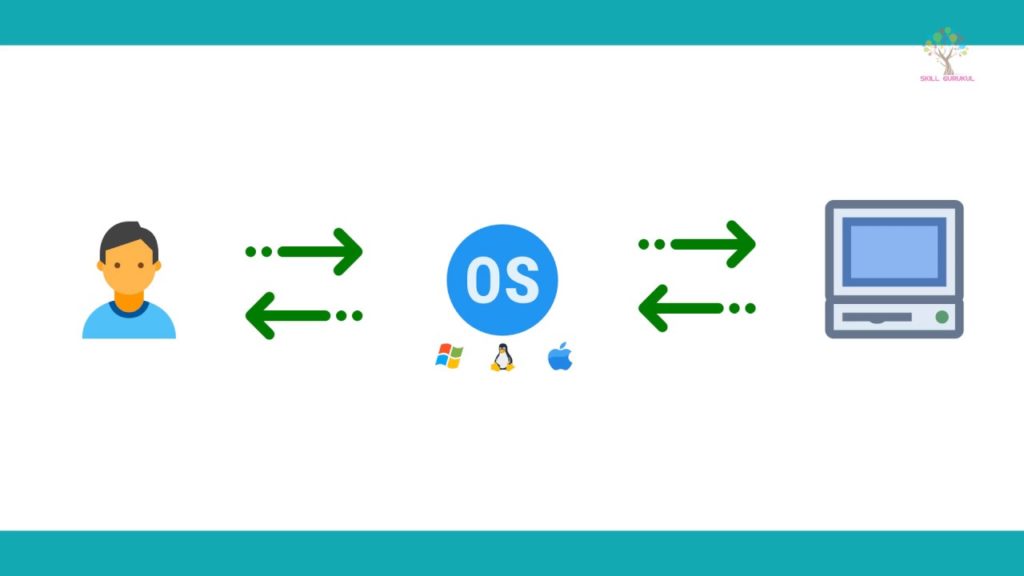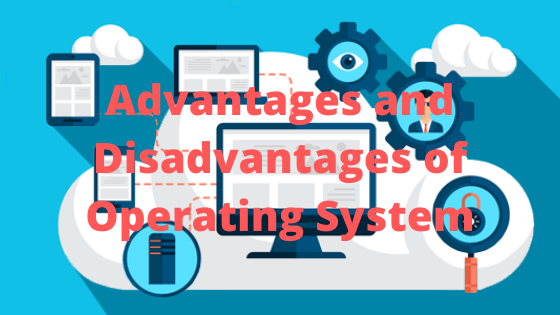An operating system is the heart of any computer without which it cannot withstand. It provides all the resources to software, manages the hardware, and implements all standard services for computer programs. In this article, we are going to discuss the advantages and disadvantages of an operating system. So let’s get started with the basics.
Operating System Definition

An operating system is a software that controls all the working of computer architecture, including hardware, peripheral devices, and all other components. It takes input from the user, processes the data, and generates output for the same. Besides, it also acts as an interface between the hardware of the system and the user. Moreover, an operating system is designed to perform various tasks such as processing information, arithmetic calculations, task scheduling, memory allocation, and deallocation, etc.
Types of Operating Systems
- Batch Operating System
- Time-Sharing Operating System
- Distributed Operating System
- Network Operating System
- Real-Time Operating System
Also Read: Difference between DOS and Windows Operating System
Advantages and Disadvantages of Operating System

There are different types of operating systems that have been transformed over time. As each operating system has its benefits and downsides, that’s the reason new operating systems have been developing. Now let’s look at the following advantages and disadvantages of an operating system.
Advantages
Computing Source
An operating system acts as an interface between the user and the hardware. It allows users to input data, process it, and access the output. Besides, through the operating system, users can communicate with computers to perform various functions such as arithmetic calculations and other significant tasks.
User-Friendly Interface
Windows operating system, when it came into existence, also introduces Graphical User Interface (GUI), which made using computers much more natural than earlier Command Line Interface. Moreover, users can quickly understand, interacts, and communicate with computer machines.
Resource Sharing
Operating systems allow the sharing of data and useful information with other users via Printers, Modems, Players, and Fax Machines. Besides, a single user can share the same data with multiple users at the corresponding time via mails. Also, various apps, images, and media files can be transferred from PC to other devices with the help of an operating system.
No Coding Lines
With the invention of GUI, operating systems allow accessing hardware without writing programs. Unlike, earlier users don’t have to write code of lines to access the hardware functionality of a computer system.
Safeguard of Data
There’s a lot of user data stored on the computer, and that can only be accessed with the help of an OS. Besides, storing and accessing the data, another important task of an OS is to safely and securely manage the data. For example, Windows Defender in Microsoft Windows detects malicious and harmful files and removes them. Also, it secures your data by storing them with a bit to bit encryption.
Software Update
An operating system is a software which needs to update regularly to control high fleeting features that are continually increasing. With other apps and software hitting updates to improve their functionality, OS must improve their benchmarks and handle all the working of a computer. An OS can easily be updated without any complexity.
Multitasking
An operating system can handle several tasks simultaneously. It allows users to carry out different tasks at the same point in time.
Other Advantages
- An OS allows installing of different types of apps and run them
- OS improves work efficiency and saves time by reducing the complexity
- Also, it helps in reducing the efforts need to access various data
- Data can be copied, deleted, moved, and restored from the computer system
- Every system component is independent of each other, so the failure of one system will not affect others
Disadvantages
Expensive
When compared to the open-source platforms like Linux, some operating systems are costly. While users can use a free OS but generally they are a bit difficult to run than others. Moreover, operating systems such as Microsoft Windows with GUI functionality and other in-built features carry a costly price tag.
System Failure
If the central operating system fails, it will affect the whole system, and the computer will not work. Moreover, an OS is the heart of a computer system without which it cannot function. If the central system crashes, the whole communication will be halted, and there will be no further processing of data.
Highly Complex
Operating systems are highly complex, and the language which used to establish these OS are not clear and well defined. Besides, if there’s an issue with OS users cannot directly understand, and it cannot be resolved quickly.
Virus Threats
Threats to the operating systems are higher as they are open to such virus attacks. Many users download malicious software packages on their system which halts the functioning of OS and slow it down.
Fragmentation
Fragmentation in the computer is a state when storage memory breaks into pieces. Internal fragmentation occurs when the method of process is larger than the memory size. External fragmentation occurs when the method or process eliminates.
So, these are the following advantages and disadvantages of the operating system. If you have any other queries or related doubt, then please let us know in the comment box below.
The post Advantages and Disadvantages of Operating System appeared first on The Crazy Programmer.
No comments:
Post a Comment